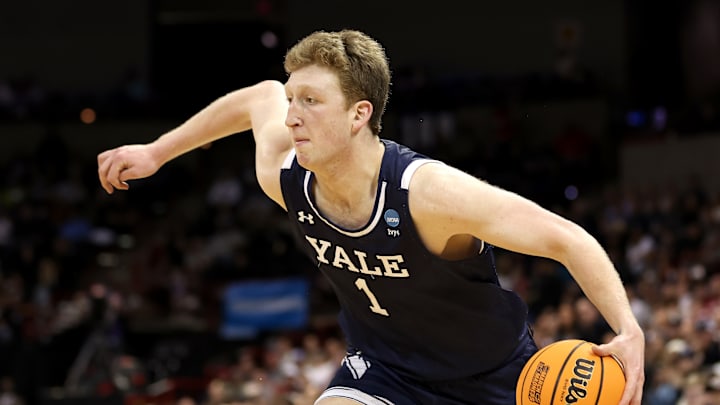Since the first year of major movement in the transfer portal in college basketball, most of the headlines surrounding the Michigan Wolverines have been around the players they thought they had, rather than those that did arrive on campus. Over the past few springs, reports have heavily linked Michigan with three major guards who wound up transferring elsewhere.
In 2022, Terrence Shannon Jr ended up at rival Illinois, where he twice was named All-Big Ten. In 2023, Caleb Love committed to Michigan, then de-committed, went to Arizona and became an All-American. This year, it was Johnell Davis potentially following his coach Dusty May from Florida Atlantic to Ann Arbor. He is instead off to Arkansas. The reports and whispers were the same for all three, that there were potential admissions issues. True or not, Michigan is certainly building a reputation.
The University of Michigan is rightfully a very proud academic institution with high admission barriers. The school was just named a "New Ivy" by Forbes. But that does nothing to ease the difficulty of having to factor academic performance into recruiting a transfer. By no means is Michigan alone in experiencing this challenge, other schools like Stanford and Davidson have lagged behind conference rivals in transfer recruiting for the same reason. But Michigan is a far larger school, with a far more sports crazed alumni base, then just about every other top academic institution in Division 1.
Skeptics will quickly dismiss this as an advantage, believing that if say, Auburn comes in with a better NIL offer for a potential recruit, then it will quickly become academics be damned. But for decades, quality players have been bucking that trend. Ivy League schools have never given out athletic scholarships, yet their member schools, especially Princeton and Harvard, have successfully recruited high schoolers with power conference offers for years.
Plenty of graduate transfers with a great institution on their Bachelor's Degree have still wanted to pursue a Master's that will carry similar weight. Just look at Ryan Langborg (Princeton to Northwestern) and Michael Jones (Davidson to Stanford), two players with the most in-demand skill of modern basketball, shooting. Both chose academics last year when they could have gone to more heralded basketball programs.
Langborg is part of a larger trend of All-Ivy League players sticking around through graduation, and then transferring up for their final season. The conference had largely been bucking the transfer trend throughout the twenty-first century, just losing graduate transfers (Ivy League rules only allow participation in athletics for undergraduate students). In fact, in this century, only one players has been named First Team All-Ivy League and transferred before getting his degree. His name is Danny Wolf.
Wolf is a seven-footer who took a massive leap in his second season, going from 2.6 ppg to 14.1 and becoming a top twenty-five rebounder nationally. He got great exposure when Yale upset Auburn in the first round of the NCAA Tournament and decided to capitalize. His choice of Michigan shows that he still cares about the school on his degree, and the chance for some nice NIL money as well. In finding a way to have both, Wolf may have carved out a path for future Ivy League stars.
Wolf's decision to transfer absolutely did not open the floodgates in the way that other single bid leagues have been crushed. Most of the conference's best transfers (Chris Manon, Matt Allocco, Clark Slajchert, Dusan Neskovic etc) continue to be graduates who had no option to return. Player of the Year Caden Pierce is returning to Princeton, and Xavien Lee will do the same if he withdraws from the NBA Draft. The other non-graduate on First Team All-Ivy, Kino Lilly Jr, is staying at Brown.
But there will be plenty more top notch players and high academic achievers who choose to follow in Wolf's footsteps. If these players choose to give up the Ivy League degree that they chose to pursue years before, the list that they will first turn their eyes to will likely be somewhat short. A combination of Stanford, Cal Berkley, Vanderbilt, Northwestern and Georgetown. Depending on their career path, others like Notre Dame, USC, Boston College and Georgia Tech could be in play. But none of these schools feature the big (size wise) school sports atmosphere and the basketball investment that Michigan has.
The early years of the transfer portal have exposed the weaknesses of Michigan's academic strength, but the door is now open for Dusty May and whatever coaches come after to have rare access into one of college basketball's best talent pools. There's a reason why the Ancient Eight has won three NCAA Tournament games in the last three years. Hopefully, for sake of those who enjoy one of the nation's most interesting conferences, Ivy League stars will continue to mostly stick around for their four years, but for the ones who don't, Michigan may have an automatic leg on just about all of them, so long as they aren't pre-med students with a mutual interest in Duke.
